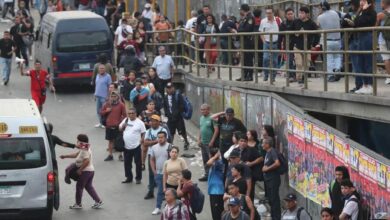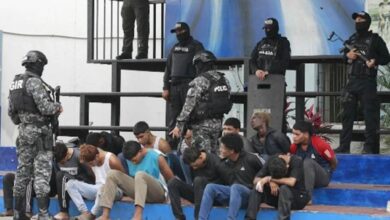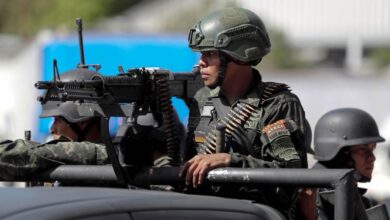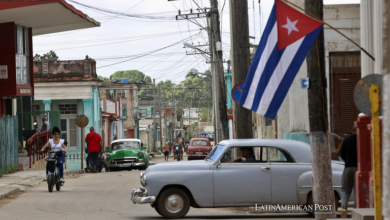Biden’s Pardon Might Encourage Anticonstitutional Leaders in Latin America
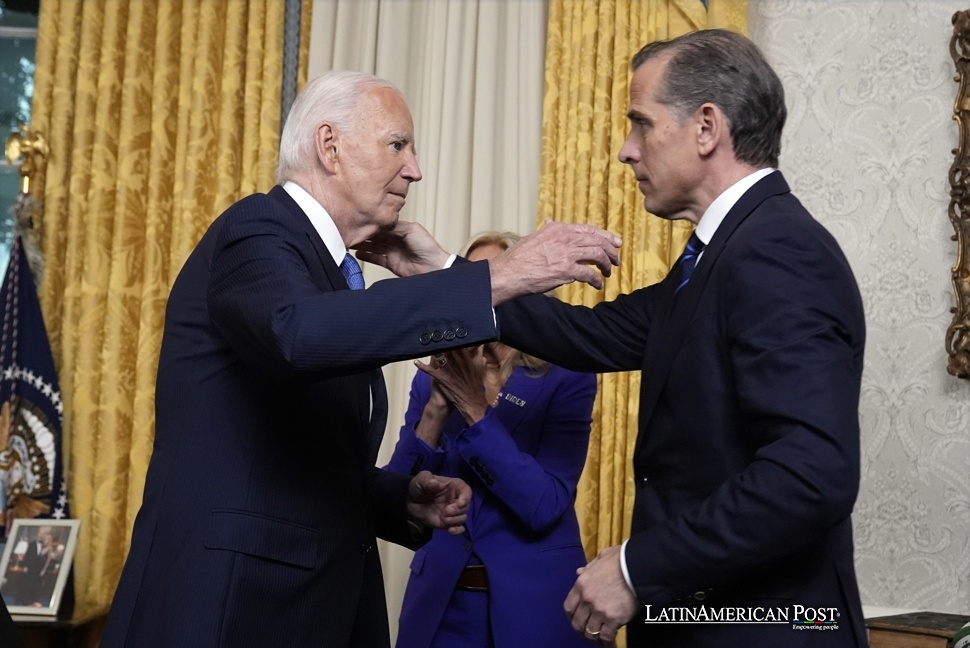
President Joe Biden’s controversial pardon of his son, Hunter Biden, has caused widespread anger. Many fear its impact could extend far beyond U.S. borders. This act of political favoritism echoes in Latin America, where fragile democracies face growing threats from authoritarianism.
A Dangerous Precedent for Democracy
Biden pardoned his son, which drew criticism from other countries and within the United States. People see it as a troubling example for world politics, and Latin American countries feel especially concerned. Many individuals view the United States as a symbol of democracy and justice. The U.S. stood as a role model for many years. Despite its problems, it often served as a guide. Leaders, even mighty ones, faced punishment. They were held accountable for their actions.
This reputation grew stronger during Trump’s presidency. Impeachments and investigations showed the strength of American systems. Biden’s decision weakens this perception. This view gets weaker. If the leader of the free world bends the rules for personal reasons, leaders in less stable democracies probably do the same. Nothing stops them.
Think about Jair Bolsonaro in Brazil. Bolsonaro faces accusations of plotting a coup to change election results. His supporters already say the judiciary is biased. Biden’s actions strengthen these claims. This situation develops a dangerous ripple effect. Leaders may manipulate views of judicial bias. They find ways to escape responsibility.
The Impact on Fragile Latin American Democracies
Latin America has a long history of authoritarian tendencies disguised as democratic governance. Leaders often change laws to keep power, avoid punishment, or protect family and friends. Biden’s pardon creates an easy narrative: If the U.S. president can pardon his son, why shouldn’t others in power do the same? This potential for abuse of power is a cause for concern in Latin America.
Look at Colombia. President Gustavo Petro is dealing with corruption charges against his son, Nicolás Petro. He is under a lot of pressure. Colombian law doesn’t let him pardon his son. Yet, Biden’s action might encourage Petro to question the courts openly. This might damage trust in Colombia’s already weak systems. Such mistrust could quickly spread to nearby countries.
In places like Venezuela and Nicaragua, democratic norms are already very weak. Biden’s actions might give leaders like Nicolás Maduro or Daniel Ortega more reason to weaken accountability. These governments have long accused the U.S. of being hypocritical – talking about democracy but acting unfairly. Biden’s pardon strongly supports this claim.
Privilege Over Principles
The main problem is the view of privilege. Biden’s pardon sends a simple message꞉: rules differ for different people. This view causes a lot of harm in places where inequality and corruption cause public anger.
People in Latin America have become tired of leaders protecting their friends while regular people suffer for minor mistakes. Hunter Biden’s situation, with unpaid taxes and gun charges, shows elitist behavior, which is common in regions with similar scandals.
Consider Mexico’s recent controversies surrounding President Andrés Manuel López Obrador’s allies. AMLO has repeatedly faced accusations of shielding those close to him from investigations. Biden’s pardon offers a justification: if the U.S. president can pardon his son, why not extend similar protections to political allies?
The Erosion of Trust
Trust is the cornerstone of democratic institutions, and Biden’s actions erode that trust domestically and globally. The implications are severe in Latin America, where public faith in governance is already fragile. Citizens may begin to view judicial systems as tools of the elite rather than protectors of justice, leading to a sense of disillusionment.
Trust breaking down is especially dangerous in places like Argentina. President Javier Milei faces a very tough job. He needs to rebuild confidence in government institutions. Milei has positioned himself as a fighter against corruption. However, Biden’s pardon creates challenges for his plans. It becomes harder to argue for strict accountability when the global standard-bearer for democracy falls short.
The impact spreads to grassroots movements fighting for justice. Activists rely on international examples to demand transparency. They might need help to rally support when the U.S. sets such a poor example. Biden’s pardon weakens their credibility. It leaves them to fight deep-rooted corruption without the moral backing they once had, making their struggle even more challenging.
A Call for Accountability
No leader should be above the law. Biden’s pardon probably happened due to personal reasons. This pardon affects many areas. Rebuilding trust in government is essential. The U.S. must stay true to the rule of law. This call for accountability empowers the audience to demand transparency and fairness.
Leaders in Latin America need to see the risks of Biden’s actions. Pardons should not become easy shortcuts for those in power. The region must strengthen its institutions, which will help resist political favoritism.
Also Read: Biden’s Expanded Refugee Program Transforms Latin American Migration
The impact of Biden’s pardon extends beyond the U.S. It serves as a global warning. Authoritarianism slowly enters democracies. Actions that prioritize privilege over principles speed up this process. If the U.S. truly values its role as a global leader, it must act with integrity, setting a standard that inspires rather than undermines.


